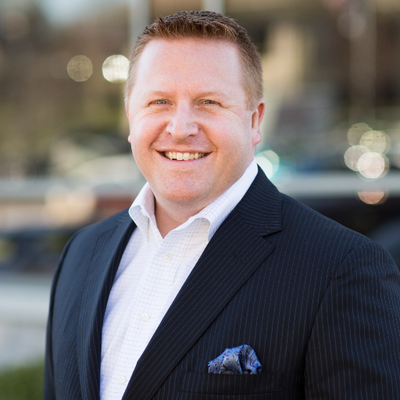Stick to the Plan with Adam Koós
Do you stick to the plan regardless of what the markets are doing? Adam Koós talks about how focus on what matters and tune the rest out!
Listen to us On
About the Episode
We focused on how to stick to the plan, the reason why most people fail to reach their desired level of financial success, how the markets feel about elections, tactical versus by and hold investing, and how to overcome recency bias, with Adam Koós, CFP, CMT, CEPA, Founder and President of Libertas Wealth Management.
Listen to hear a difference-making tip on when people make financial plans and when they ought to!
You can learn more about Adam at LibertasWealth.com, Facebook, YouTube, X, and LinkedIn.
Did you get anything out of this episode? Do us a solid and leave a review:
https://ratethispodcast.com/alignedmoneyshow
Learn more and engage at MoneyAlignmentAcademy.com, Twitter, LinkedIn, Instagram, YouTube and Facebook.
Buy George G a coffee (he loves coffee)
https://www.buymeacoffee.com/lifeblood
Have George G speak
https://moneyalignmentacademy.com/speaking/
Financial literacy and wellness for individuals, families, and companies
https://moneyalignmentacademy.com/
Find George G’s books here
The Aligned Money Show is the podcast for Money Alignment Academy, copyright 2024.

George Grombacher
Host

Adam Koós
Guest
Episode Transcript
george grombacher 0:02
Adam, to get us started, give me two truths and a lie, please. Two
Adam Koos 0:05
Truths and a Lie. All right, here we go. I got to make sure that I don’t Is there, like some kind of system you’ve used to figure out the lie? By the way, do you have some kind of secret lie? Okay, I am a black belt in Taekwondo. I once ran a marathon in under three hours, and I was signed to a record deal for singing.
george grombacher 0:32
Well, these are excellent a black belt in Taekwondo, you ran a marathon sub three hours, and you got signed to a record deal for singing. Wow. Holy cow, awesome. You do have a very nice voice. Adam, so I can see that I’m gonna say you’ve not, you’ve not run a marathon in sub three hours. You are correct.
Adam Koos 0:57
I tried once, but I’ll never do it again. Yeah,
george grombacher 1:00
tell me about the singing.
Adam Koos 1:03
Oh, wow, I was, I didn’t think you’d ask me that we I used to, well, you know, sing like a lot of us do, in the privacy of our car, in the shower, in the basement, you know. And I had a friend in college who, or roommate, technically, who was already signed to a record deal, and he was on an album, you know, already kind of had his. It wasn’t was starting his fame, I guess you could call it, and I would cut my hair, my cut my own hair in the basement, and I’d always be singing down there. And he heard me one day, and he’s like, you know, you’re, you’re really good. He says you’re actually sound better than the guy you know singing. I’m like, come on, you know, you gotta be kidding me. And of course, you know, singing in public was tough. So to make a long story short, he convinced me to start going to these karaoke competitions at this place, and I started winning first place all the time, which was like a $250 prize some days, some days, 500 and amazing. I was making college money, you know, so. And one day at this competition, this guy walks up to my table and he says, Hey, I’m an artist. I sing, and my producer over here at our table would like to meet you. And so he came, I went over to the table, and he says, Have you ever thought about singing professionally? I said, No, but yes, but no. And they asked me to audition, and I did, and then they signed me. And again, it’s trying to make this short, but went to Chicago after a compilation was recorded, the producer, it was set up as a limited partnership. The producer stole my car in the middle of the night. Yep, right as you’re about to pick up a drink. Yep, stole my car in the middle of the night, sold all my stuff in it for drugs, and I had to fly back to Columbus the next day with a one way ticket, so you’re getting home in time for class the next day. Needless to say, the whole record label went under, and they were really close to us to a label deal with Interscope. So that was really exciting. And then that was it. It was all over with, and was fun. And but the So, the bad news is, it was a terrible story. The good news is, I fell in love with the art of producing music, and that’s kind of what I think I love the most. And so you can’t see it here, but I’ve got, well, maybe the keyboard here. I’ve got a DJ deck, but I saw DJ kind of as a second life from and then I’ve got recording studio here in front of me. And as much as I wish I had more time for it, I still love making music. It’s a lot of
george grombacher 3:14
fun. That’s awesome. Not the part about you getting ripped off, but the rest of it was
Adam Koos 3:18
cool. His girlfriend was nice enough to meet us in Indianapolis two weeks later, once they found my car, and my wife and I, our girlfriend at the time, went, drove there together and drove him back. So I was able to get my car back, even though I had no radio in it. You know, there wasn’t much left, but it ran back in
george grombacher 3:35
the day when people would steal the radio, the stereo out of cars,
Adam Koos 3:42
all you’d see people carrying their pullout radio. Yeah, for sure. Yeah,
george grombacher 3:47
I remember that. Do you remember what the song was that that, that you nailed? Or did you have a go to song? Yeah,
Adam Koos 3:55
it was, I know it was an Eric Benet song. So I was more I was raised listening to R and B, primarily of R B and hip hop. But it was, it was an Eric, I think was, let’s stay together by Eric Binet, I remember correctly. Yeah, that’s awesome. I’m not going to sing it. No, I
george grombacher 4:12
was, I like to put people on the spot, but maybe not quite that far. So that’d be pretty hardcore. And do you still practice taekwondo? No,
Adam Koos 4:20
that was, that was a long time ago. I competed in college at Ohio State, and that was a lot of fun. It kept me really kind of on the straight and narrow. Kept me focused. You know, didn’t drink at all in college, but, but not, not anymore. It’s, that’s, that’s a prior life. I actually tried to get back into it with my kids, because the 1411, year old kids are both into it, but I learned the hard way that this body isn’t what it used to be.
george grombacher 4:40
Yeah, it’s a frustrating thing, but all too often a reality. So, well, excellent. Well, you are a man with with many varied interests, and I respect and appreciate that. What is top of mind for you right now? Top
Adam Koos 4:55
of mind for me right now with what’s going on in our business, the world? Money management, financial planning, retirement planning, is definitely the election. So, you know, we’re we’re entering, literally today. We’re entering into a two month period that is seasonally not a good time for the stock market. You know, the market has a tendency to decline between September and October, up until the election, or shortly beforehand, and because the market doesn’t like uncertainty. So you know, when stocks don’t know what’s going on, who’s going to win the election, they kind of freak out. However, contrary to popular belief, the market really doesn’t care a whole lot about who wins. They just want certainty at the end of the day. So I’m not going to be boring and not and not, not be divisive here at all, but, but it is, I think, I think it is important to make sure that people understand that it’s not about who wins. It’s about that somebody wins. And I think the guarantee is somebody’s going to win. So that’s, that’s, I’d say the top of mind. That’s where you get some questions about these days, client, new clients coming on board. You know, wanting to hold off until they invest their money, maybe so some of their money until after the election, things like that,
george grombacher 6:04
which is a very, very human thing, say, You know what? I’m just gonna, I’m gonna wait until this blows over or conditions are right. So, so what do you typically say when somebody says that? Obviously, I’ll
Adam Koos 6:16
give you a real life example. We just had somebody recently who said, you know, Hey, are you flexible? Like, how do you invest the money when we transfer our money over to you? I said, Well, you know, for a portfolio your size, and it’s a large portfolio, I’d say we typically go in, you know, in fourths or 20% for five weeks, you know, basically trying to catch the market on a bad day. So kind of baby step into the into the portfolio model that we’ve decided on, or and which is usually a combination of two or three models. And then he said, Well, would you are you flexible on that? And I said, Well, what do you mean? And he says, Well, you know, if, if you wanted to, would you be okay with say, if we did half of it between now and the next four weeks, but then we waited for the other half until after the election, let’s just say. And he says, do you, and my favorite part of it? He says, Do you think that’s a good idea, because that’s such a great tee off. Such a great tee off, teeing me up to ask the right question or say the right thing. He said, Do you think that’s a good idea? And my answer was, I will find out after the after the election day, because I have no idea. So I said, you know, we’re either a we do it and we find out. You know, in December that, man, I’m so glad we we put half away before and half after because it worked out for us. Or we’re going to say, oh, man, I wish we would have put it all away in that first four or five weeks, because we would have been so, so much better off. And of course, the problem is we’ll have no idea until we get there. So I think when you when you’re honest and transparent and forthright like that and and you know, you’re kind of having that conversation with somebody, and they both, you both realize, look, I don’t, I’m not a magician either. I’m the Wizard of Oz. I don’t have any, you know, strings I can pull here, as much as I wish I did, but I don’t. I’ve got a com, a crystal ball on my conference table that was a joke gift from a client, and I always point at it and like, it doesn’t work. I wish I did, but it doesn’t work. But so that’s a good example of how I deal with stuff like that is just, you know, being honest, talking about the truths that are, you know, the market, and that the market doesn’t care what we
george grombacher 8:08
think. It does not care what we think at all, which is pretty cold hard of the market, but that’s, that’s, that’s, that’s just part of the deal. You are one of of relatively few people that have is it? Is it certified market technician? Is that the designation?
Adam Koos 8:24
Yep, charter market technician. Obviously it’s not Country Music Television, but yeah,
george grombacher 8:28
so you are chart market technician, and which means obviously that you have a better understanding, a better working knowledge of markets than most people. I think that that’s probably fair to say. I’ll let you answer that in a second. But then you look at the scenario, it says we just don’t know what’s going to happen. We know that the market doesn’t like certainty. So just want to get your take on that, and then maybe a greater conversation about what your philosophy to just, I guess, just investing in general.
Adam Koos 8:59
Yeah. I mean, I think that. I guess I’m probably going to answer both at once here, but I think that when we look at the market, I want to say that I feel like I know the market more than most people. I don’t even like saying stuff like that about myself, but I would say that I got to where I’m at and got the CMT designation because I started my career 10 days before the World Trade Center went down. I was 21 years old. I was trying to get people three times my age to trust me with their life savings at a time when the market was falling precipitously, which was not easy. It kind of probably goes without saying. And then when things got better, between 2000 you know, 3456, I’m thinking, Okay, finally, you know, getting some some portfolios in the black. People are happy then, oh seven. Of course, market peaks in oh seven October, and starts, it starts going down again and and to make it a long story short, I’m like, you know, I’ve got a in summer of 2008 I said, either a I’m going to sell this company and do something else for a living, because I just can’t take sitting here and blaming the market or blaming mutual funds for why? Things are going wrong, and then, you know, have pretend like I have no, no feelings about it. You know what I mean when I did honestly? So it’s either sell the company or do things differently. And that’s when I started learning technical analysis, seeking out mentors, going to the CMT program, things like that. So really, you know, at our office, we manage both your traditional buy and hold strategic models for the people that make sense, and then we also manage tactical trend following models for those that make sense, and usually the clients have a combination of the both. And the reason for that is because, as much as trend following sounds like market timing, it’s it’s not trend it’s not trend prediction. It’s trend following. You’re still following the trend at the end of the day, so you really don’t know how things are going to end up, you know, until after it’s all over with. So I always use the analogy that market crashes or warnings of market crashes are a lot like tornado sirens. And if it, and I don’t know about, you know, Phoenix, Arizona, where you live, but here in Columbus, Ohio, you know, you you get lots of tornado sirens, and there’s never a tornado. I mean, just rarely, you know, but obviously different around the world. But when you look at the stock market and you carry the analogy forward, every seven or so tornado sirens, you get a tornado that comes in and wipes out your portfolio, not completely, but you know, whether that’s the average is 42% so you get a 42% reduction if you’re in all stocks. So technical analysis is great to have on your side and trying to find is great to have on your side with either all or portion of your money, as long as you understand that there’s going to be times when you again, to keep the analogy going. Here, you take your family to the basement when the tornado sirens go off, and then when the sirens stop, you come upstairs and you realize there was never a tornado, and your neighbor across the streets going, Hey, did you see that touchdown? You’re like, Well, no, I was in the basement with my family. You didn’t go the basement. I never go to the basement. There’s never tornadoes. You know, what do you guys are idiots, and you’re going to feel like an idiot when you when you implement money management and retirement planning that way, which is why you want to do it both ways. Because it’s not until it’s all over with covid is a perfect example. You know, when the covid crash happened, market goes down 34% in 21 days, then it goes up 34% 29 days later. I mean, that’s what you call it, a whipsaw from hell. And there’s no trend following portfolio that’s going to do well. Well, I shouldn’t say there’s no trend very, very few trend following portfolios are going to do well in an environment like that. In other words, it’s going to be very difficult to not sell low and buy high. In other words, you have to trade up to get back in the market, whereas we’re all stuck at home, you know, during covid, the market. I mean, businesses aren’t even open yet, and the market’s up 34% off the bottom, and everybody’s looking at each other, going, What in the world is going on? But I sure am glad I stayed in the market with a part of my money. So that’s why I always say it’s good to have some of both. I think whether that’s 5050, 7525 1/3 two thirds, or vice versa. So philosophically, I would say that I believe that there are better ways to manage money and better ways to manage your retirement planning than just simply diversifying, or, as I like to call it, diversifying and just throwing your money into a bunch of stuff and hoping it goes up and praying when it goes down. You know,
george grombacher 12:59
I appreciate that that sort of answers. My next question I have is, you’re obviously employing buy and hold and then this tactical approach, which is harder for you as as as an advisor. In fact, it’s hard, for sure.
Adam Koos 13:11
Yeah, strategic models are, I don’t wanna say easy, but they’re, they’re simple and they’re easier. I’m not to say that tactical trend following models are not, you know, simple, they’re also simple. It’s just you have, you have the rules put in place, and you follow the rules, and if you don’t follow the rules, then you you have no rules, right? It’s kind of like if you have more than three priorities, you don’t have any priorities. So, you know, when it comes to but even our buy and hold models, we still implement something called relative strength as a basis for all security selection. So when we’re deciding what investments to buy, I like to use the analogy that instead of just, you know, using hockey, I know we’re talking about hockey off air. So as opposed to, you know, putting a little bit of money into every team in the NHL and kind of diversifying it, you know, maybe a little less money in the in the Columbus Blue Jackets, for instance, for obvious reasons. No, I’m kidding, but little less money in certain teams. Maybe, you know, people don’t like owning commodities. I always say that’s like the the jalapenos of a dish had jalapenos. Everybody freaks out. But if you as opposed to having every a little bit of money in every team in the NHL, what we’re doing is we’re focusing on the playoff teams. So we invest our money in the playoff teams. We’re going to own the Stanley Cup winner, but we’re not putting all our money on the Stanley Cup winner, because Cup winner, because we might lose completely so but if we own all the playoff teams, we’re diversified in those playoff teams, and we avoid the rest, which is very simple to do. It’s not easy, but it’s simple. Then what we end up with is a very, very good portfolio that you know, are we going to hit? Are we going to have a win rate of 100% No. Is it going to be right around 7074 Yeah. And is there anything wrong with 74 Absolutely not.
george grombacher 14:44
That’s a great it’s a great way to describe it. Think that that makes sense. And is that how you describe it to clients?
Adam Koos 14:52
You do, yeah. We Yeah. We have several, several analogies we use because I think that’s the easiest way to explain something that’s very complex. Like some technical is to make it, you know, real life, but we’ve used March Madness, the NFL, college football playoffs, everything you know so depends on the season.
george grombacher 15:07
Yeah, for sure. And just because something is harder to implement, that doesn’t mean it’s easy to describe. And I mean as as you look at your practice and the business of of Investment Management. Obviously, you need to do a good job with how you’re managing money, but then you have to do a good job with how you’re managing your clients, Yep,
Adam Koos 15:32
yeah. And I think that the latter is more difficult because you’re dealing as you put it earlier, you said, you know, this stuff’s not easy. It’s money is very emotional. It’s a very emotional thing. And we can have the same conversation during, you know, the market pullback that occurred between July and Halloween of last year, which was a, I don’t call it nasty, but it was a grinding correction, market correction. We had the same kind of correction happen between July 15, in the beginning of August, and people were calling for an emergency Fed meeting, you know, to have Jay Powell come out and cut rates immediately. Now here we are. It’s, we’re almost at market all time highs again. So it’s, it’s amazing how how recency bias plays in to the markets and retirement planning and and I always say that the number one reason why clients financial plans and retirement plans fail is because the client abandons their plan. And the number one reason they abandon their plan is because they haven’t put together the right portfolio. That is, think of it like an analogy, like a car, you know, not everybody wants to be driving, you know, a brand new Corvette. Across the country, you’re gonna get beat up, you know. And some people would, though, maybe, but not very many. That’s where the Gaussian bell curve gets really thin at the tails there. But I think most people are somewhere in the middle, you know, moderate growth, balanced. They want something that’s going to get them from countryside to countryside, through all the weather, through the traffic, in a way that’s comfortable. And I think that clients abandon their plans because they’re in the wrong portfolio. And it all comes down to downside risk, because nobody cares if they’re making more money than they thought they would, right? It’s that they’re losing more than they thought they would. That becomes a problem.
george grombacher 17:08
It makes so much sense. Why? Why did I not reach my objectives? It’s because too many starts and stops. I banded the plan, I moved advisors, I, you know, this, that and the other thing, and a lot of it, is that recency bias. I don’t remember what happened, you know, a year ago or two years ago, especially with what’s going on in the world today and the frequency of news and events. So I don’t, I don’t, I guess I don’t blame clients. No, for sure,
Adam Koos 17:34
I don’t either. It’s, it’s, um, it’s, you know, used to be that you’d have to wait till you got the paper in the afternoon when you got home to read the news. Now it’s on your phone, you know, it’s on the radio. It’s everywhere,
george grombacher 17:46
constant, and while your crystal ball, did it ever work Adam, or is just just, just you. You got the you got a faulty model.
Adam Koos 17:57
I got a I got a lemon. It’s terrible. It’s I got a I got a lemon of a crystal ball. And the only time it’s ever, only time it’s ever worked, it’s been, it’s been a placebo effect. It I got lucky. There’s nothing wrong with a little luck, by the way. You know, got lucky a couple times, but tripping, give the, give the credit to the crystal ball, that way you don’t end up with a god complex, right? Yeah,
george grombacher 18:18
yeah. I think that that’s a good point beyond let’s assume that the election is is settled, and we have a president of the United States come midway through November, are you confident about the future of the economy? Are you unsure? Does nobody know?
Adam Koos 18:34
I’m confident about it. I mean, I think I have my concerns, like, I think we have way too much debt, and I think the amount of debt we have as a percentage of what we make in this country. In this country is way too high. I think that we’ve got to figure out a way to either pay the debt off, write it down, or inflate our way out of it. I’m looking at US debt clock.org right now, and our debt right now is 123.22% of our annual GDP, which essentially means that if it were a family making $100,000 a year as a family, that their credit card debt minimums are equivalent to 122% of their annual income. So in other words, they’re paying minimums of $122,000 a year on their credit cards, not paying off the balance, just paying the minimums. And so the difference is the government’s not a family. So I’m sure that I’ll get shade for that. But so the government is not a family, but, uh, but I do. I do. I have some concerns about debt. I want to, I would. I’m obviously, you know, proud American. I I want to the US dollar, to remain the reserve world, you know, world’s reserve currency, even if we are the cleanest dirty laundry. You know, I wanted to stay that way, but I do. I don’t think it, I don’t think it really matters a whole lot, and it won’t for, I think several election cycles, who wins this presidency. I think at the end of the day that the American economy will prevail, as it always
george grombacher 19:57
does. Amen, well, Adam, we’re ready for. Difference making tip. What do you have for us? Sir, sure.
Adam Koos 20:03
Yeah. I think that if I had one tip for every single person that’s listening to this episode, it would be to not be one of the very, very large percentage or majority of people who don’t have a financial plan. I know it sounds so boring and simple, but really, at the end of the day, the average person puts together their first financial plan at 52 years of age, which is really, really sad. When you look at the statistics in terms of how much money is in the average 401, k, if there’s a balance at all, that’s really sad. So this, the state of retirement readiness in this country is embarrassing, and it’s part, you know, partly our job to fix that problem. So, you know my why? You know Simon Sinek, My why is, you know, I want to, I want to save people, you know, from bad advice, bad, you know, bad direction and and protect those people and get them on the right path. And so if there’s one thing you can do for yourself, it’s, it’s find somebody that, whether it’s in your neighborhood, online, it doesn’t make a difference. Build a financial plan. Don’t be intimidated. I think the reason people don’t do it is they they feel stupid. They feel like they don’t know what to ask. They feel like they’re behind. And that’s just a constant self perpetuating cycle of I don’t feel like I’m ready, so I’m gonna wait, and then you still don’t feel like you’re ready, so you wait longer, and then it just keeps feeding itself. And then, if you’re ever curious on who to hire, because there’s no shortage of financial advisors out there. That’s for sure. My recommendation is always to go to nafa.org It’s the National Association of Personal Financial Advisors. And if you go to napa.org and you put in your zip code, it’ll give you a list of all the fee only fiduciaries who have a whole lot fewer conflicts of interest than a lot of the advisory firms out there. So that would be, I think, a good place to start. And I believe that you’ve probably done 90% of the research at that point, all you need to do is find the right person that you want to get along with that’s going to, you know, be your, your your Obi Wan, because at the end of the day, you’re Luke Skywalker, you know. So it’s being the Obi Wan, the guide that’s going to get you from here to there, being, you know, they’re being, obviously retirement and beyond.
george grombacher 22:02
Well, I think that is great stuff that definitely gets Come on. People make their first planet 52 years old. I didn’t know that, but it doesn’t surprise me. Adam, it’s crazy, man, it is. Well, thank you so much for coming on. Where can people learn more about you? How can people engage with you?
Adam Koos 22:21
No, thank you, George. And best place to probably find me is on LinkedIn. Just look up my name, Adam coach, K, O, S, at LinkedIn, or just head over to our website, libertaswealth.com L, I, B, E, R T, A, S, W, E, A, L, T, H, Libertas wealth.com
george grombacher 22:36
podcasts, yeah,
Adam Koos 22:38
we do have a podcast called The retirement fiduciary for the non business owners out there, and for people who are business owners looking to grow de risk, become more efficient, increase profits, net worth and maybe right off into the sunset someday elevate your business on YouTube, Spotify Apple podcasts, both the retirement fiduciary and elevate your Business are both online. Thanks for mentioning it
george grombacher 23:02
for sure. Well, if you enjoyed this much as I did, show Adam your appreciation. Share today’s episode with somebody who also appreciates good ideas. Find Adam on LinkedIn. Certainly link that in the notes of the show. Go to libertaswealth.com check out everything that Adam is working on, what he’s been talking about today, and then listen to his podcasts the retirement fiduciary as well as elevate your business, and we will link those as well. Thanks. Get Adam, thank you, George. Finally, friendly reminder, never going to be anybody more interested in your financial success than you are, so act accordingly. You.
Transcribed by https://otter.ai
More Episodes
Beyond the Bank Balance: Cultivating a Soulful Relationship with Money
You don’t need to be a Wall Street shark or a personal finance guru to develop a healthyrelationship with money. In fact, most of us start with little more than a jumble of beliefsand habits passed down from our families. But if you’ve ever found yourself stressed at...
How Using AI Can Help You Gain Clarity Into Your Financial Future
In today's fast-paced, data-driven world, achieving financial clarity can feel like an overwhelming task. With numerous financial decisions to make—from budgeting and investing to retirement planning and debt management—it's easy to feel lost in the complexity of it...
How AI Can Help Improve Your Personal Finances
1. Smarter Budgeting and Expense Tracking AI-powered tools like Mint, You Need a Budget (YNAB), and PocketGuard can automatically categorize your expenses, track your spending in real time, and even alert you when you’re about to exceed your budget. These tools...
Trust and Confidentiality When Using AI as Your Financial Coach: Safeguarding Your Sensitive Data
In the digital age, artificial intelligence (AI) has revolutionized many aspects of our lives, including personal finance. AI-powered financial tools have become a go-to resource for budgeting, investing, debt management, and even retirement planning. But as more...
How AI Can Be Your Personal Financial Coach: Unlocking the Future of Financial Success
In today’s fast-paced world, managing your finances can feel overwhelming. With so many options for saving, investing, and budgeting, it can be hard to know where to start or how to stay on track. Fortunately, advances in technology—specifically Artificial...
How Technology and AI Are Benefiting Investors and Consumers in Securing Their Personal Financial Futures
In recent years, the rise of technology and Artificial Intelligence (AI) has profoundly transformed the financial landscape. These advancements have empowered investors and consumers to make more informed, efficient, and personalized decisions about their financial...
10 Things New Parents Should Be Thinking About Regarding Their Personal Finances
Becoming a parent is one of the most joyful and transformative experiences in life. However, it also brings new financial responsibilities and challenges. If you’re a new parent or expecting, it’s crucial to plan ahead to ensure your family’s financial security. Here...
10 Things Newlyweds Should Be Thinking About Regarding Their Personal Finances
Marriage marks a new chapter filled with excitement and partnership. While love may be the foundation, financial harmony is key to building a stable and happy life together. To set yourselves up for success, here are 10 essential financial topics that every newlywed...
Financial Tips for New Parents: Building Stability and Security for Your Growing Family
Becoming a parent is one of life’s most rewarding experiences, but it also brings significant financial challenges. From diapers to daycare, the costs add up quickly. Whether you’re a first-time parent or adding to your family, managing finances wisely is crucial for...
Join the show.
Interested in being on the show? Tell me a little bit more about you and what you’d like to talk about!














